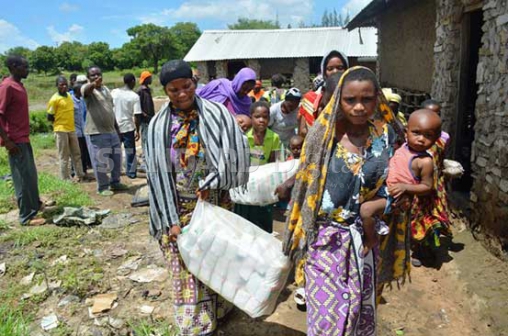×
The Standard e-Paper
Home To Bold Columnists

Mwanamkasi Saidi counts herself lucky. She rescued her one-year-old baby from raging waters as floods wreak havoc in Kwale County.
“When it started raining, I was out fetching water. I just got into the house as my last born child was about to be swept away. I shudder at the thought of what could have happened,” she says.